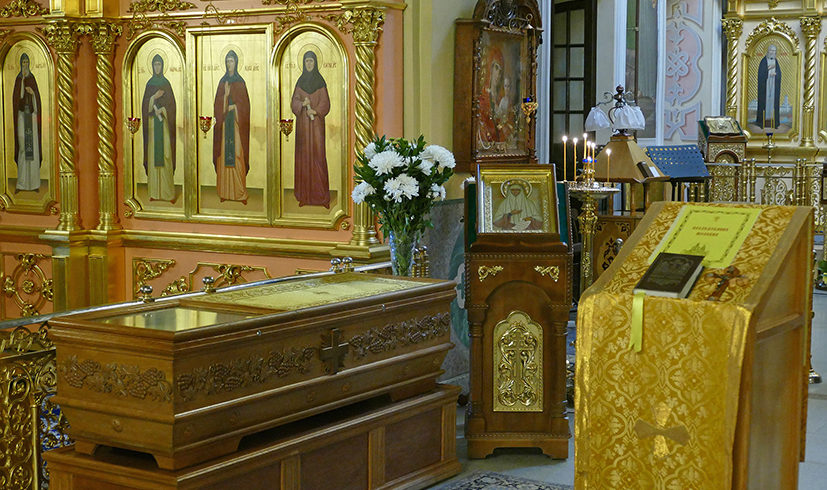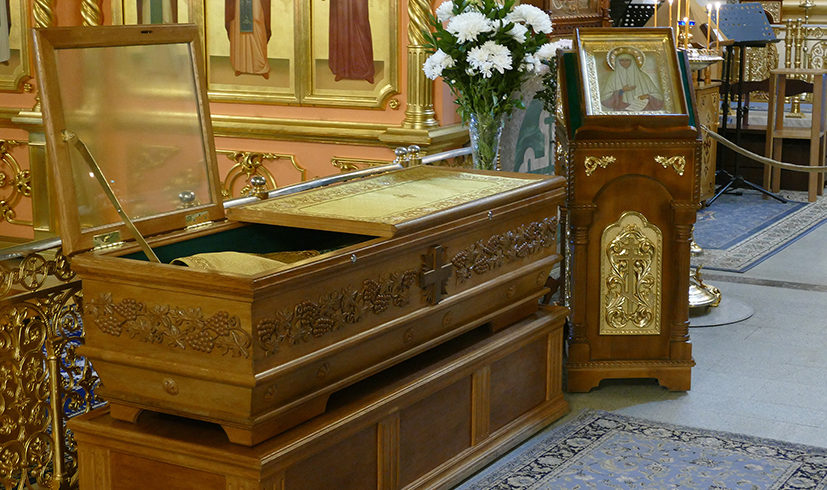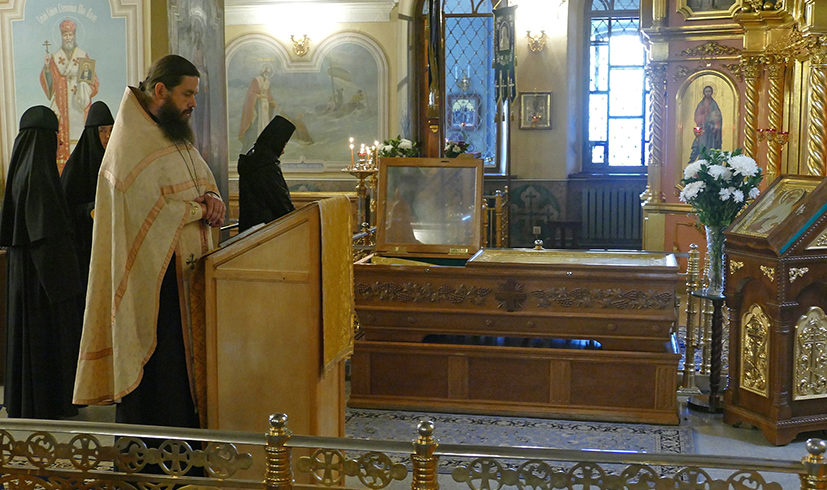




Remembering the day of uncovering the relics of Venerable Confessor Matrona of Diveyevo
September 18th is a memorable day for the Seraphim-Diveyevo monastery. In 2007, the relics of Venerable Confessor Matrona of Diveyevo were uncovered on this day. The relics rest at the monastery’s Kazan Cathedral and Fr. Nikolay (Molodtsov), the monastery’s priest, served a Molieben in front of the saint’s tomb.
The venerable confessor’s grave was located at the village of Suvorovo 15 km away from Diveyevo. Archeologist Yury Smirnov headed the process of uncovering of the relics. In the morning of September 17, 2007, the monastery’s priest Protopresbyter Fr. John (Gleshinsky) held a prayer service for the beginning of work reading a canon and prayer for the saint. Following it, the prayers to saint Matrona have continually been read throughout the day. Uncovering of the relics took the whole day and was completed on the following morning.
“The uncovering of these relics is a particularly joyous and festive affair for us, since the relics of other Diveyevo new martyrs have been lost,” Hegumenia Sergiya, the abbess of the Seraphim-Diveyevo monastery, said at that time. “The Venerable Confessor Matrona was incarcerated three times. However, through his brother’s petitioning, she was released from the place of her last exile and resided in her native village during the last years of her life. The Venerable Confessor Matrona’s holy relics will add to the host of our saints as their relics help, enlighten and strengthen us to confess our Orthodox faith.”
Matrona Vlasova was born in 1889 into the family of peasants from the village of Puzo of Nizhny Novgorod Province. At the age of six, she was orphaned and placed in the care of the Seraphim-Diveyevo monastery. The youngster exhibited an early talent in drawing, so art soon turned into obedience for her. Following a life of obedience and prayer, the nun Matrona stayed in the monastery till its dissolution in 1927.
After the monastery closed, nun Matrona with three other sisters from Diveyevo resided in the village of Kuzyatovo of Ardatov District. Leading a peaceful and serene life, the sisters served at church and made embroidery for living. However, in April of 1933, the sisters were arrested on charges of carrying out anti-Soviet propaganda. On May 21, 1933, nun Matrona was sentenced to three years at Dimitrov camp in the Moscow Province.
Nun Matrona returned from imprisonment and worked as a cantor, guard and sacristan at the village church in Verigino, Gorky Province. On November 10, 1937, she was arrested again and sentenced to 10 years of camps in Karlag (Karaganda concentration camp system. –tr.). Her superiors praised her for her good work and modesty. After her release, nun Matrona took up residence in the village of Vyezdnoye near Arzamas. On October 19, 1949, she was arrested once more. The new charges were based on the previous investigation from 1937. The authorities charged mother Matrona with hostile activities and tried to get her to incriminate a priest from the village of Verigino. However, the investigators’ efforts had no effect. Her file contains a note that “the case of detainee Vlasova’s M.G. contains no reference to persons incriminated in her testimony.”
Mother Matrona was exiled to village Kamenka of Lugovsky District, Dzhambul Province, Kazakhskaya Soviet Republic. In 1954, her brother filed a petition to pardon his sister. During the last years of her life, nun Matrona lived with her brother in her native village of Puzo. Locals remember her meek and quiet disposition. The major part of her day was spent in prayer. The local church was closed, so the Diveyevo sisters “served” in their homes, despite bans and persecution.
Nun Matrona died peacefully on November 7, 1963. She was buried at the village cemetery to the left of the graves of martyrs Eudoxia, Daria, Daria and Maria.


